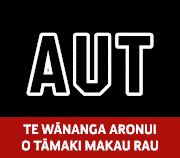The question many couples struggle with is: How do we start?
Experience tells most of us that saying “We need to talk” rarely goes well.
This way of starting a conversation can imply things are not good, brings up feelings of uncertainty and concern and creates fear-based responses.
If you know your partner well then you will have some ideas about what has worked well in the past for sensitive conversations – consider those ideas when looking at the examples below.
For the first conversation avoid heavy emotion-filled topics like debt and start with something lighter.
If you haven’t already looked at setting the scene you may want to consider timing, location mood etc. before making a start.
If you want to arrange and plan a time to have the conversation, you could start by saying you want to talk about your future; financial goals or plans.
Acknowledge that the topic is sensitive and there are likely to be different perspectives but it’s important to you.
Here are a few examples you could use to start a conversation:
I was thinking about our future and the discussion we had about buying a house - can we talk about it some more?
I know money can be a tricky topic, but I want to understand our finances better. Can we make some time on Sunday afternoon to talk about it?
Can we make a time to have a chat about our future plans? I know we might see it differently, but I am interested in your thoughts.
These examples may seem simple, but that doesn’t mean the conversation will necessarily be smooth or easy, so be prepared to work through difficulties as they arise and know that this is just a starting place.
Potential conversation scripts

It is useful to think about discussing money with your partner in terms of an area that needs to be managed or strengthened, rather than trying to solve your money problems.
There are probably a lot of money matters to be discussed, so it is most helpful to understand finances as an ongoing topic.
A good way to start your conversations is by sharing how you view and feel about money – including what you learnt from the section on your relationship with money.
Share your emotional relationship with money with your partner, including the messages about money that you recall from your childhood.
By having this conversation, you will both have a better understanding of what money means to each of you personally.
Once you have shared your history, give your partner an opportunity to share theirs.
TIP
Don't try and cover everything at once.
Take your time and tackle one thing at a time.
Below are a few conversation starters
This is how my parents spent money, saved money and talked about money.
These are some of my childhood financial memories of my parents, siblings and other significant people.
Thoughts that may come up from these conversations starters




































Understanding each other's money personalities
The next step will be to discuss your understanding of each other’s money personality.
Each person will bring with them into the relationship their own financial style. Sometimes these styles will align, but often they will be different.
For example
YOU
pay the bills as soon as you receive them.
YOU
regularly check your bank balance.
YOU
pay the minimum amount into your KiwiSaver.
YOUR PARTNER
pays the bills right before the deadline.
YOUR PARTNER
has a rough idea of how much is in the account.
YOUR PARTNER
contributes the maximum amount.
For example
YOU
pay the bills as soon as you receive them
YOUR PARTNER
pays the bills right before the deadline
YOU
regularly check your bank balance
YOUR PARTNER
has a rough idea of how much is in the account
YOU
pay the minimum amount into your KiwiSaver
YOUR PARTNER
contributes the maximum amount
Here are some conversation starters to get a sense of your partner's money style
Rethink:
How much money do you have in your savings?
Try:
Would you say your more of a saver or a spender? Why?
Rethink:
What’s your credit rating?
Try:
What are your thoughts on debt?
Try:
Would you say you’re more of a saver or a spender? Why?
Try:
What are your thoughts on debt?
Using the $100,000 question
What would you do with $100,000?
Answering this question with your partner is an excellent gateway to having better conversations about money.
Most of us will never have a spare $100,000 lying around and for this reason, it is an easy, low-pressure and even fun question.
The answers to this question will help you build a foundation for future money conversations.
"Hmmm... maybe a sports car!"


$10,000 to pay off debt, $25,000 saving for the kids education, $20,000 for a new car, $15,000 for a holiday and $30,000 for the retirement fund.


When you answer this with your partner, you are basically telling each other what you value.
You can talk about your differences and discuss how your priorities can blend to form common goals.
It is also good practice for spending real money.
When you practice spending fake money with your partner, and have all the conversations that come along with it, it makes having real conversations easier because there are far fewer emotions attached to pretend money.
Think of talking about money like working out a muscle, the more you talk about money-related issues, the easier it becomes, and the really important issues become less daunting.
It may feel like the issue of money is just too difficult, or too big, but money does not have to be complex or intimidating.
Finances feel difficult because of underlying tensions, values and emotions tied to them.
Making the decision to talk about these issues, and acting on that decision, is a crucial step in bringing you closer with your partner.




“It is great to have the strategies and challenges come together so that you are learning together, sharing together and discovering together”
– Toolkit user
Good Shepherd NZ in partnership with Dr Ayesha Scott
AUT Finance Department
Disclaimer
The information, content and materials provided in our Healthy Financial Relationships Toolkit is for general informational purposes only and does not take into account the financial situation and/or particular needs of any person. Before making important financial decisions, you should seek professional advice if possible. This Toolkit contains links to other third-party websites. Such links are only for the convenience of the reader, user or browser. Good Shepherd NZ and AUT do not endorse the contents of third-party sites.
Did you find this useful?
We are a not-for-profit organisation working to improve the financial and social wellbeing of New Zealanders.
The resources on this website are provided free of charge to make sure they are available for people who need them.
If your organisation found these resources helpful, please consider making a donation to ensure we can continue supporting those people who need our help.
You can also make a donation, or set up a recurring donation, by contacting us directly



